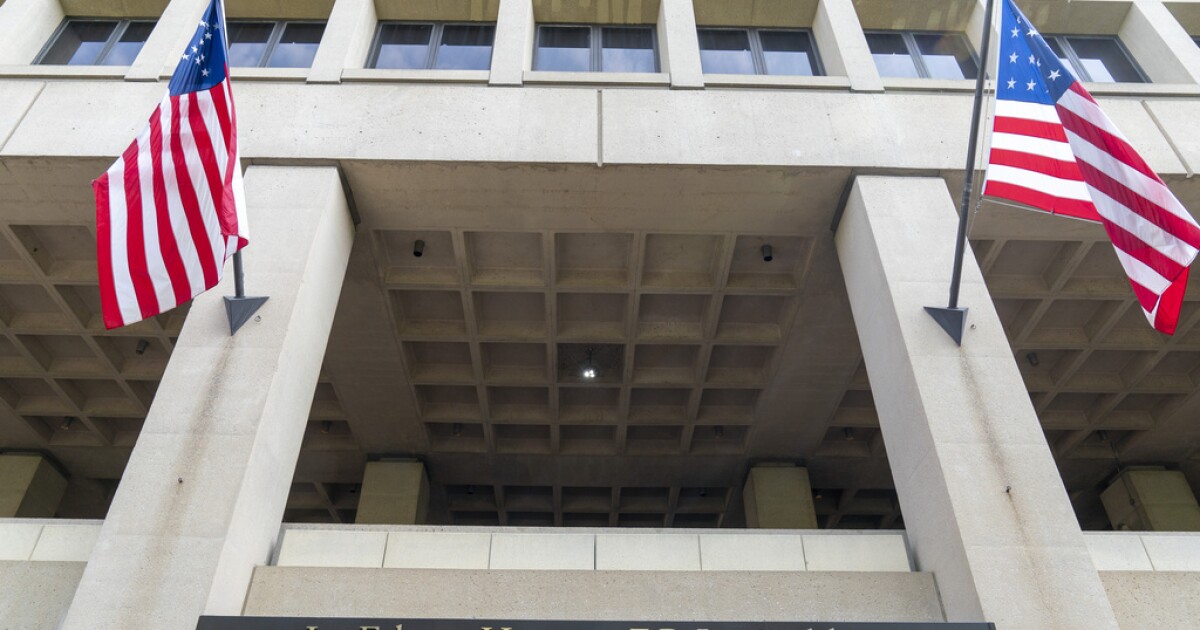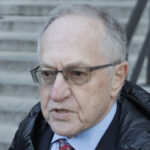

A former federal government official who had outsize influence over the decision to move the FBI’s headquarters to Maryland is drawing scrutiny after Director Christopher Wray said the official had a “potential conflict of interest” with the process.
Nina Albert, who worked as a top Biden-appointed official in the General Services Administration, had the final say over the selection of Greenbelt, Maryland, according to public documents about the selection process.
NEARLY ALL MAINE RESIDENTS HAVE DATA STOLEN IN CYBERSECURITY ATTACK
The GSA, which manages federal workspaces, was responsible for overseeing the process of relocating the FBI’s headquarters from its current site at the J. Edgar Hoover Building, an aging brutalist low-rise in downtown Washington, D.C.
Wray revealed to his employees Thursday in a memo obtained by the Washington Examiner that he had concerns about the “fairness and transparency” of the process and Albert’s role specifically.
Although he did not use her name, he made clear his concern was with her affiliation with the Washington Metropolitan Area Transit Authority. Albert was a vice president at the WMATA before she left in July 2021 to join the GSA.
WMATA and the state of Maryland own the land chosen for the FBI’s new multibillion-dollar campus, and WMATA stands to gain from the roughly 11,000 employees expected to use the facility, which will be situated in the immediate vicinity of the Greenbelt Metro station.
While only a fraction of employees would likely use public transportation for their daily commute, that would still be a boon to the green and yellow lines, which currently see an average of about 2,000 riders per day at the Greenbelt stop.
Wray told his employees that “the FBI raised a serious concern [to the GSA] about the appearance of a lack of impartiality by the GSA senior executive given the executive’s previous professional affiliation with the owner of the selected site.”
This summer, career officials and experts conducted a evaluation of three locations — Greenbelt; Landover, Maryland; and Springfield, Virginia — following years of fighting among the two states over the matter.
They unanimously decided Springfield was the best option, but, according to Wray, Albert made the “exceedingly rare” move to reject the unanimous recommendation, citing numerous reasons why she found Greenbelt was the best alternative.
He said the GSA went ahead with announcing the decision “without meaningfully addressing the FBI’s concerns.”
Wray’s memo prompted a bipartisan group of Virginia leaders, including Gov. Glenn Youngkin (R-VA), Sens. Mark Warner (D-VA) and Tim Kaine (D-VA), and several House members, to call for a decision reversal.
“We are deeply disturbed to learn that a political appointee at the General Services Administration overruled the unanimous recommendation,” they said in a joint statement, adding that it “is clear this process has been irrevocably undermined and tainted.”
Maryland leaders, however, defended the process in a celebration in Greenbelt on Friday. One of them, Rep. Glenn Ivey (D-MD), called Wray’s remarks “astonishing.”
“The statements he made about that public servant were just over the line, and there was no factual basis for it, none at all, and he knew that she wouldn’t have a platform to respond to that kind of thing,” Ivey said. “I just think it’s so disappointing, to say the least, that he would do that.”
The GSA stood by its decision in the wake of Wray’s memo, saying his claims were “inaccurate” and “unfounded” and that the selection process followed “all laws, regulations, and ethical considerations.”
CLICK HERE TO READ MORE FROM THE WASHINGTON EXAMINER
Wray noted in his memo that Congress, which controls federal government funding, will “control the next steps” and that he will continue to make his concerns clear.
Albert did not respond to a request for comment.





